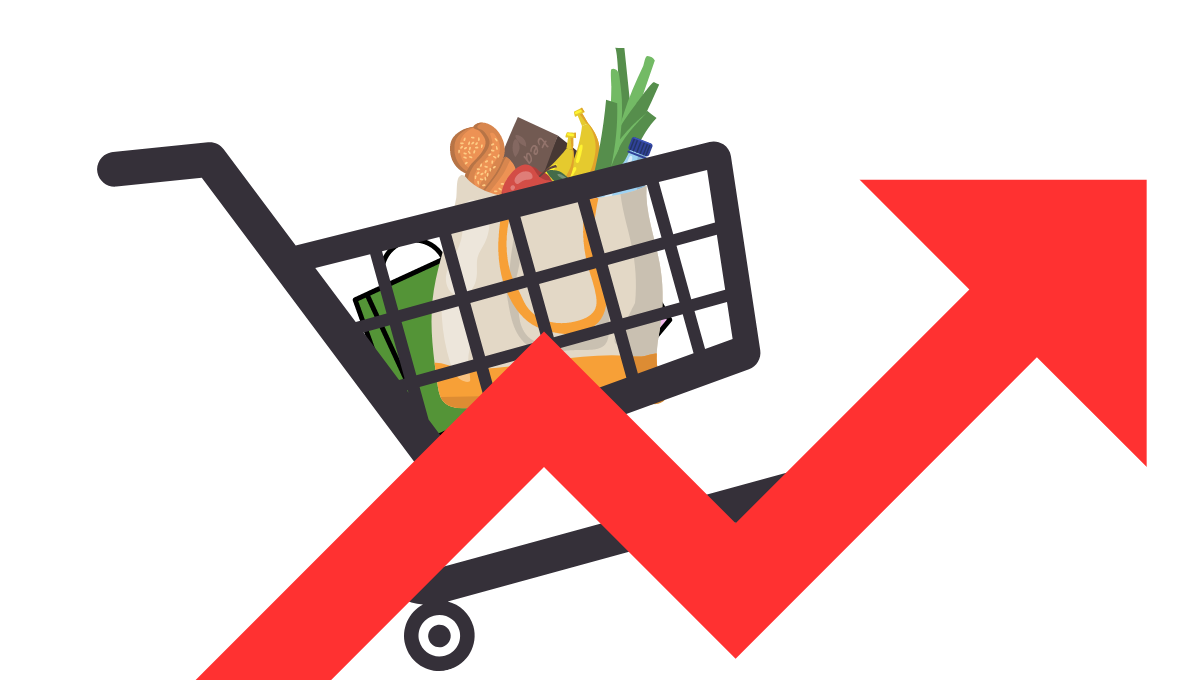Inflation is a word we frequently come across, but what exactly does it mean? In this article, we will explore the concept of inflation, its causes, how it’s measured, and its impact on our daily lives. By breaking it down .
What is Inflation?
Inflation refers to the general increase in the prices of goods and services in an economy over a certain period. In simple terms, when inflation occurs, the value of money decreases, meaning that people need more money to buy the same things they used to afford for less. This can lead to challenges for individuals and families, as their purchasing power diminishes.
When inflation is high, everyday essentials like food, gas, and rent become more expensive, affecting people’s ability to meet their basic needs. For example, if the price of groceries increases, families may have to cut back on their spending or change their buying habits.
Causes of Inflation
Several factors can contribute to inflation, such as:
- Demand-Pull Inflation : Happens when the desire for goods and services outstrips their availability. For instance, if more people want to buy cars than are available, car prices will likely increase.
- Cost-Push Inflation: This happens when the costs of production increase, leading businesses to raise their prices to maintain profit margins. For example, if the cost of oil rises, transportation and production costs for many goods will also rise, leading to higher prices for consumers.
- Built-In Inflation: This type occurs when businesses and workers expect prices to rise in the future. If workers demand higher wages to keep up with anticipated price increases, businesses may respond by raising prices, creating a cycle of inflation.
Measuring Inflation: The Consumer Price Index (CPI)
Economists use various methods to measure inflation, with one of the most common being the Consumer Price Index (CPI). The Consumer Price Index (CPI) shows how the prices of a group of goods and services that people buy, like food, housing, clothing, transportation, and healthcare, change over time.
To calculate the CPI, economists compare the cost of the basket of goods in the current period to its cost in a designated base year. If the current cost is higher, it indicates inflation. The percentage change in the CPI over time is used to measure the inflation rate.
The Impact of Inflation
Inflation can have both positive and negative effects on an economy and individuals. Let’s explore these effects in more detail:
Positive Effects
- Economic Growth: A moderate level of inflation can indicate that the economy is expanding. When prices rise slightly, it can encourage consumers to spend rather than save, stimulating economic activity. Businesses may also invest more in growth and expansion during periods of mild inflation.
- Wage Increases: Inflation often leads to wage increases as workers negotiate higher pay to keep up with rising prices. This can enhance the standard of living for many employees, provided wage growth outpaces inflation.
- Debt Relief: For borrowers, inflation can reduce the real value of debt. If inflation is high, the amount owed becomes easier to pay back in the future because the value of money decreases.
Negative Effects
- Decreased Purchasing Power: As prices rise, consumers find that their money does not stretch as far as it once did. This can lead to a decline in their standard of living, especially for those on fixed incomes.
- Uncertainty: When inflation is high, it can cause confusion in the economy, making it harder for businesses and consumers to plan ahead. This uncertainty can lead to reduced investment and slower economic growth.
- Income Inequality: Inflation can disproportionately affect lower-income households. These families typically spend a larger share of their income on essentials, such as food and housing, which can increase significantly in price during inflationary periods.
- Interest Rate Increases: To address inflation, central banks might increase interest rates. While this can help stabilize prices, higher interest rates can also make borrowing more expensive for both consumers and businesses, potentially slowing economic growth.
Conclusion
Inflation is a complex economic issue with multiple causes and impacts. While it can promote growth and lead to higher wages, it can also diminish purchasing power and create economic uncertainty. Understanding how inflation is measured and its implications is crucial for policymakers and individuals alike. By keeping a close eye on inflation rates and implementing measures to control excessive inflation, governments can work towards maintaining a stable and prosperous economy.
In the end, staying informed about inflation and its potential impacts can empower consumers and businesses to make better financial decisions in an ever-changing economic landscape.

